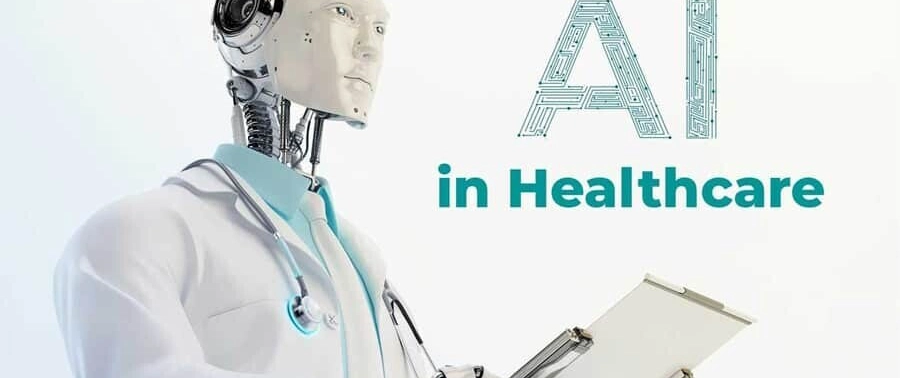Introduction
Artificial Intelligence (AI) is revolutionizing the healthcare industry by improving diagnostics, personalizing treatments, and enhancing operational efficiency. From early disease detection to robotic surgeries, AI-powered solutions are helping doctors and researchers save lives. In this blog, we will explore how AI is transforming healthcare, its benefits, real-world applications, and the challenges it faces.
1. The Role of AI in Healthcare
AI leverages machine learning, deep learning, and natural language processing (NLP) to analyze vast amounts of medical data. This enables faster and more accurate diagnoses, drug discovery, and treatment recommendations. The key areas where AI is making a significant impact include:
✅ Medical Imaging & Diagnostics – AI algorithms can detect diseases like cancer, pneumonia, and eye disorders from medical images with high accuracy.
✅ Personalized Medicine – AI helps tailor treatments based on a patient’s genetic profile and medical history.
✅ Virtual Health Assistants – AI-powered chatbots and voice assistants guide patients, schedule appointments, and offer basic medical advice.
✅ Drug Discovery – AI accelerates drug development by predicting how compounds will interact in the body.
✅ Robot-Assisted Surgeries – AI-driven robotic systems enhance precision in complex surgeries, reducing recovery times.
2. Real-World Applications of AI in Healthcare
1. AI in Disease Detection & Diagnosis
AI is helping doctors diagnose diseases at an early stage. For example:
- Google’s DeepMind developed an AI model that detects eye diseases from retinal scans.
- IBM Watson Health assists oncologists by analyzing medical literature and suggesting cancer treatments.
2. AI in Radiology & Medical Imaging
- AI-powered tools like Aidoc and Zebra Medical Vision analyze X-rays, CT scans, and MRIs to detect abnormalities quickly and accurately.
- AI can identify tumors and fractures faster than human radiologists, helping in early intervention.
3. AI in Drug Discovery & Development
- AI platforms like Atomwise use deep learning to predict how molecules will interact, speeding up the drug discovery process.
- AI helped in the rapid development of COVID-19 vaccines by analyzing virus structures and predicting effective treatments.
4. AI-Powered Virtual Assistants & Chatbots
- AI chatbots like Babylon Health and Ada Health assist patients by analyzing symptoms and recommending possible treatments.
- Virtual nurses, such as Molly from Sensely, provide round-the-clock support and medication reminders.
5. AI in Robotic Surgery
- The da Vinci Surgical System uses AI to assist surgeons in performing minimally invasive procedures with enhanced precision.
- AI-driven robots reduce complications and improve patient recovery rates.
3. Benefits of AI in Healthcare
🔹 Faster & More Accurate Diagnoses – AI reduces human error and speeds up the diagnosis process.
🔹 Cost Reduction – AI-powered automation cuts operational costs and improves resource efficiency.
🔹 Improved Patient Care – AI enhances patient monitoring, reducing hospital readmissions.
🔹 Enhanced Drug Discovery – AI shortens the time required to develop new drugs and treatments.
🔹 Scalability – AI systems can analyze millions of patient records, helping researchers and doctors make better data-driven decisions.
4. Challenges & Ethical Concerns
Despite its benefits, AI in healthcare comes with challenges:
⚠ Data Privacy & Security – Handling sensitive medical data raises privacy concerns.
⚠ Bias in AI Models – AI can inherit biases from training data, leading to inaccurate predictions.
⚠ Regulatory Approvals – AI-based healthcare solutions require strict regulatory approvals before deployment.
⚠ Human-AI Collaboration – AI should assist, not replace, healthcare professionals.
5. The Future of AI in Healthcare
The future of AI in healthcare looks promising with advancements in:
- AI-driven predictive analytics to prevent diseases before they occur.
- Wearable AI devices for real-time health monitoring.
- Blockchain & AI integration for secure patient data management.
- AI in mental health to detect depression and anxiety through speech and facial analysis.
Conclusion
AI is transforming healthcare by improving diagnoses, enabling personalized medicine, and enhancing efficiency. While challenges exist, ongoing advancements in AI technology promise a future where healthcare becomes more accessible, accurate, and patient-centric. Embracing AI in healthcare can save lives and revolutionize the medical industry as we know it.
Are you excited about AI’s role in healthcare? Share your thoughts in the comments below!



Top comments (1)
Great insights! It's fascinating to see how AI is redefining diagnostic accuracy, patient care, and even administrative workflows in healthcare. As adoption continues to rise, I believe the biggest challenge will be balancing innovation with ethical responsibility and data privacy. Thanks for sharing this informative piece!
For those interested in how AI-driven pharmacy app development can support next-gen healthcare solutions.